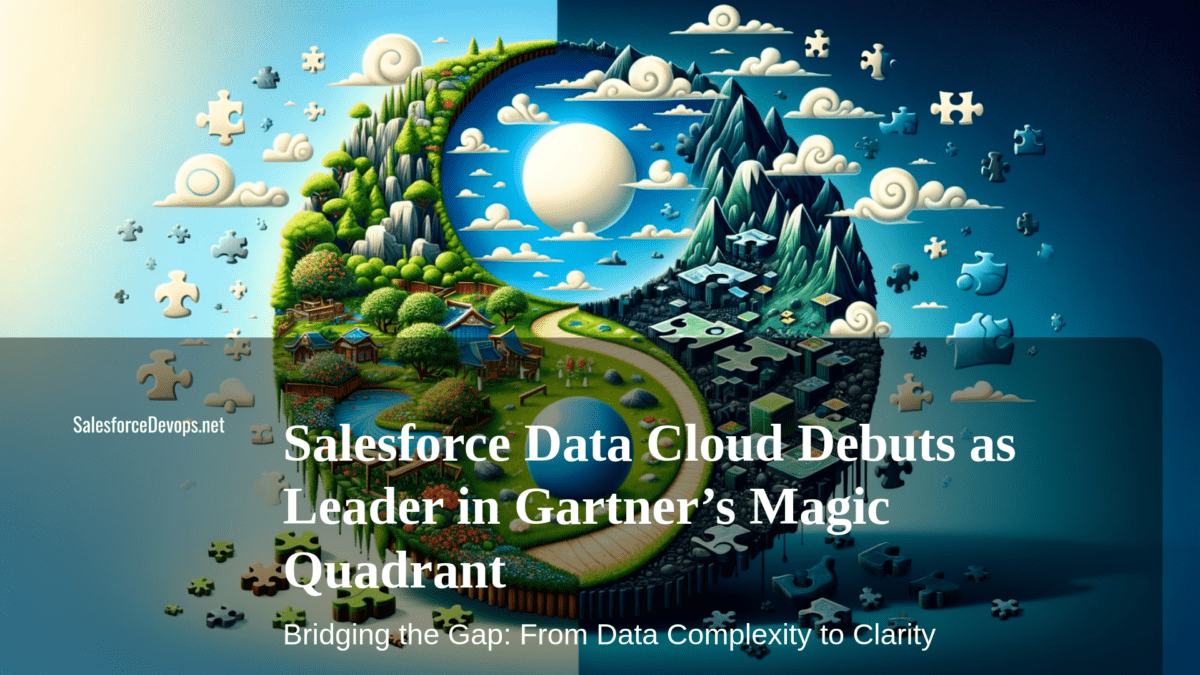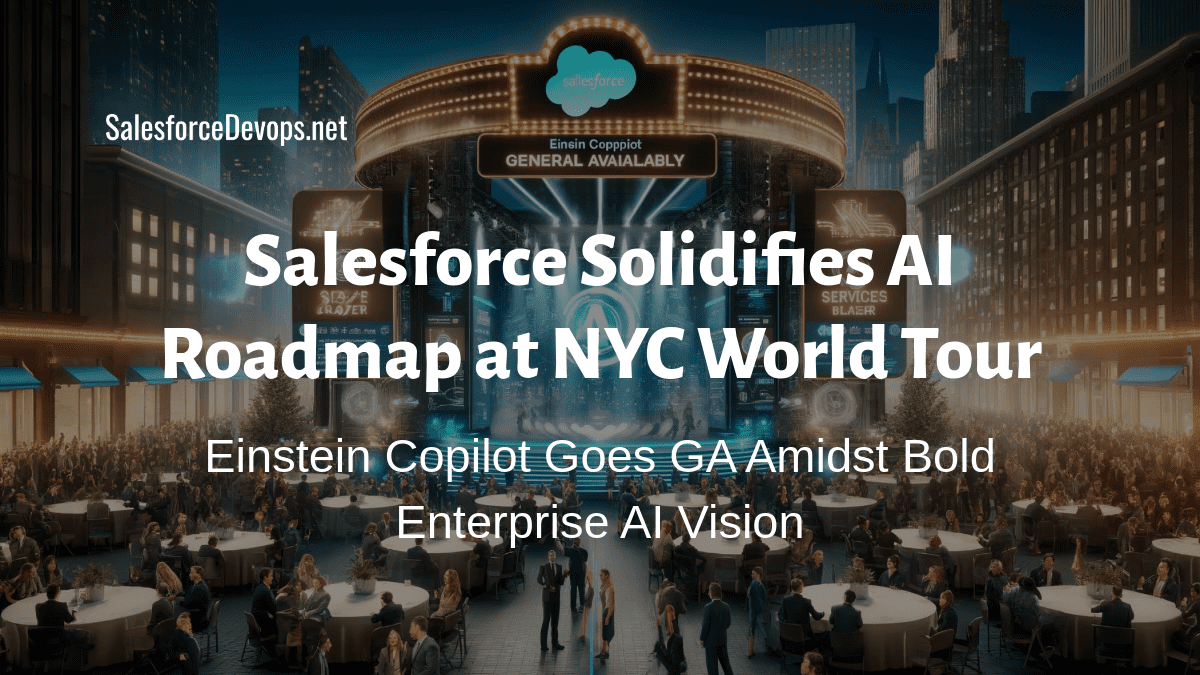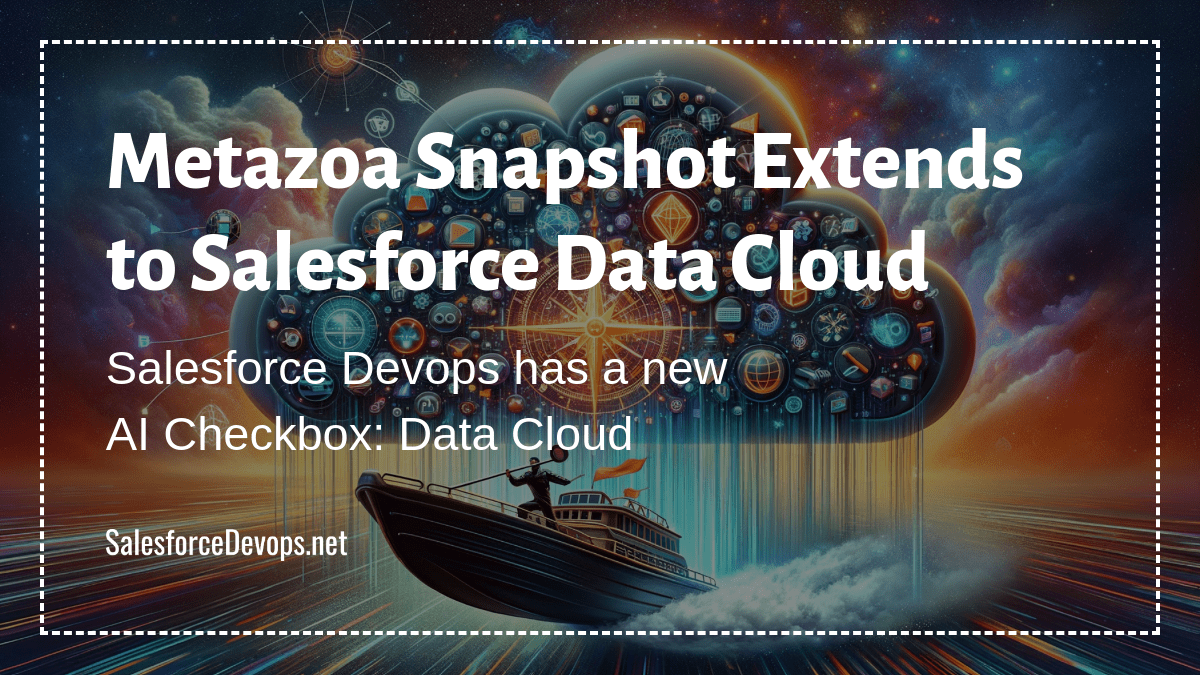Salesforce Data Cloud Debuts as Leader in Gartner’s Magic Quadrant
In Gartner’s first Magic Quadrant report for Customer Data Platforms (CDP), Salesforce Data Cloud has clinched a position as Leader. This is a commendable feat that speaks volumes, especially when considering the broader context of Salesforce’s current market penetration with this platform.
In this post, I’ll be peeling back the layers on this development, particularly through the lens of its implications for Salesforce’s ambitions in AI and the broader enterprise tech landscape.
Table of contents
Salesforce Data Cloud: A Leader with Much to Prove
Despite Salesforce’s vast global customer base exceeding 150,000, Data Cloud boasts a comparatively modest adoption with only around 1,000 customers paying for the product. While most of these 1,000 Data Cloud customers are among Salesforce’s largest, this figure might seem underwhelming at first glance. Yet, Gartner’s endorsement as a Leader in the CDP space signals a strong vote of confidence in the platform’s capabilities and strategic direction.
For Salesforce, this accolade is not just a pat on the back but a crucial lever in convincing IT buyers of the platform’s merit, even as it seeks to broaden its footprint.
The Strategic Importance of Data Cloud in Salesforce’s AI Ambitions
Salesforce’s push into AI is no small endeavor; it’s a linchpin in their strategy to redefine customer engagement and business intelligence. That makes Data Cloud a foundation upon which Salesforce’s AI initiatives are built. So, Data Cloud’s ability to unify and activate customer data across the ecosystem is paramount.
The Gartner Leader status, in this context, serves as a potent catalyst, potentially accelerating adoption among IT buyers who, swayed by the endorsement, may now see Data Cloud as a more viable and strategic investment.
Salesforce Data Cloud Strengths and Weaknesses
According to the Gartner report, Salesforce Data Cloud is lauded for its hyperscale data platform capabilities. It is built on Salesforce’s Hyperforce and designed to seamlessly activate data across the Salesforce ecosystem and beyond. Its integration enhancements, such as zero-copy data access with data lakes and warehouses like Snowflake, and the introduction of features for advanced data control and profile unification, are strategic moves that align with the evolving needs of modern enterprises. Moreover, Salesforce’s commitment to innovation is evident in its plans to leverage Generative AI for segmentation, prediction, and activation, promising to further enhance the platform’s value proposition.
However, despite these strengths, Salesforce Data Cloud is not without its challenges, according to the report. The platform’s approach to integration with non-Salesforce applications and data warehouses limits its appeal to businesses that are not deeply entrenched in the Salesforce ecosystem.
Additionally, the platform’s perceived complexity and the requirement for specialized data talent underscore the importance of Salesforce’s ongoing efforts to streamline Data Cloud’s usability and accessibility, particularly for organizations that are new to Salesforce or those lacking in-house data management expertise.
Unpacking the Paradox: Leadership Amidst Nascent Adoption
Salesforce’s positioning as a Leader in the CDP market by Gartner, juxtaposed against the backdrop of Data Cloud’s nascent adoption, presents a fascinating paradox. It reflects a belief in the platform’s potential to transform customer data management and activation.
As the world has gotten adjusted to the idea of having large language models (LLMs) as a new, nondeterministic computing platform. But LLMs often behave badly, so before an LLM goes into production guardrails are clearly needed.
By being the first major cloud service provider to brand and promote safety and ethics in AI engineering and orchestration, many have latched on Salesforce’s story about the Einstein Trust Layer. Combined with the equity Salesforce already has earned with their “trust is our greatest value” motto, Salesforce has captured the admiration of many key financial and industry analysts, Gartner included.
This scenario underscores the market’s forward-looking nature, where the promise of technological innovation often precedes widespread adoption.
A Difference Maker
Without a doubt, this report will be highly touted at the upcoming TrailblazerDX conference in two weeks, and in every customer meeting going forward. Due to Gartner’s influence, this report is bound to help many enterprises get over the hump of trusting Salesforce for their CDP and AI data needs.
According to the Gartner report, the designation of Salesforce Data Cloud as a Leader is a testament to its significant impact on the customer data platform space. With its innovative edge and strategic enhancements, Salesforce Data Cloud is well-positioned to meet the evolving needs of enterprises.
However, it’s crucial for potential adopters to weigh the platform’s integration complexities and expertise requirements against their own capabilities and needs. As the landscape of CDPs continues to evolve, Salesforce Data Cloud’s trajectory will be an early barometer of Salesforce’s Einstein platform success.






